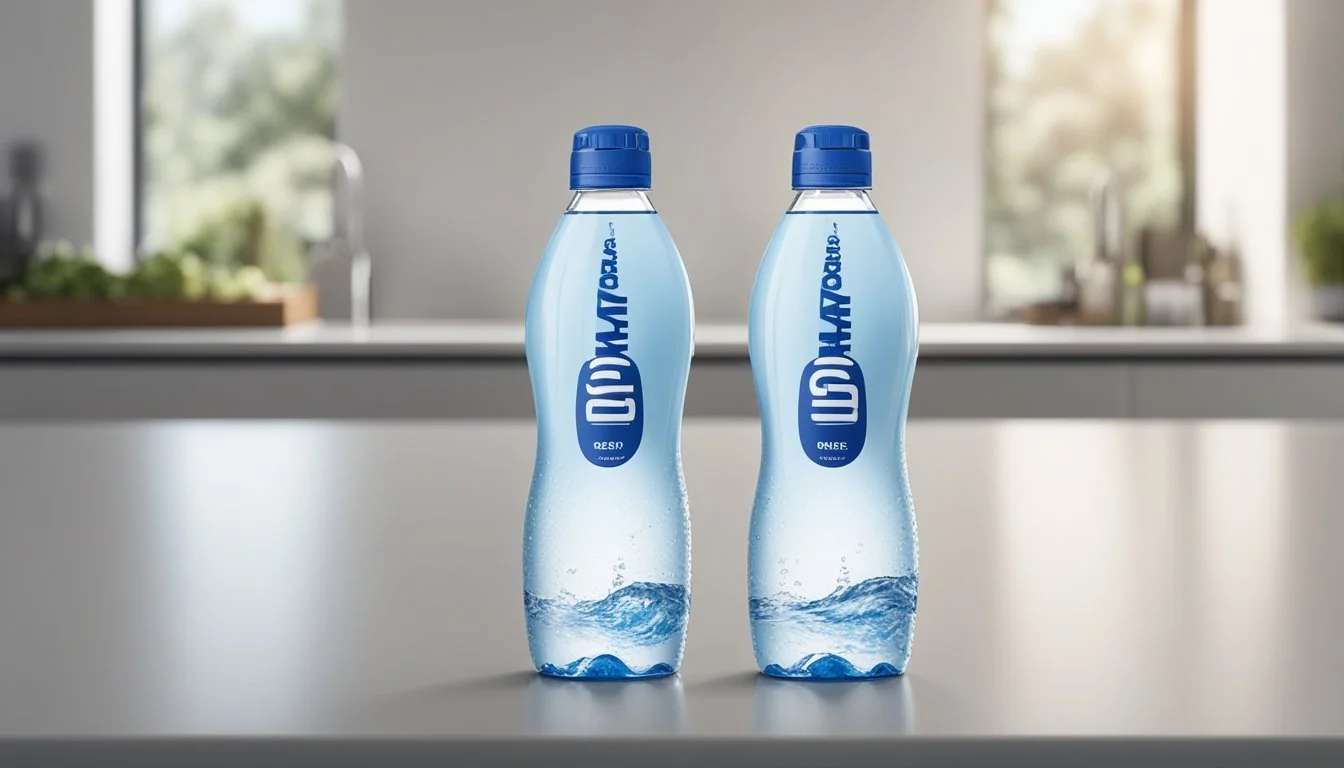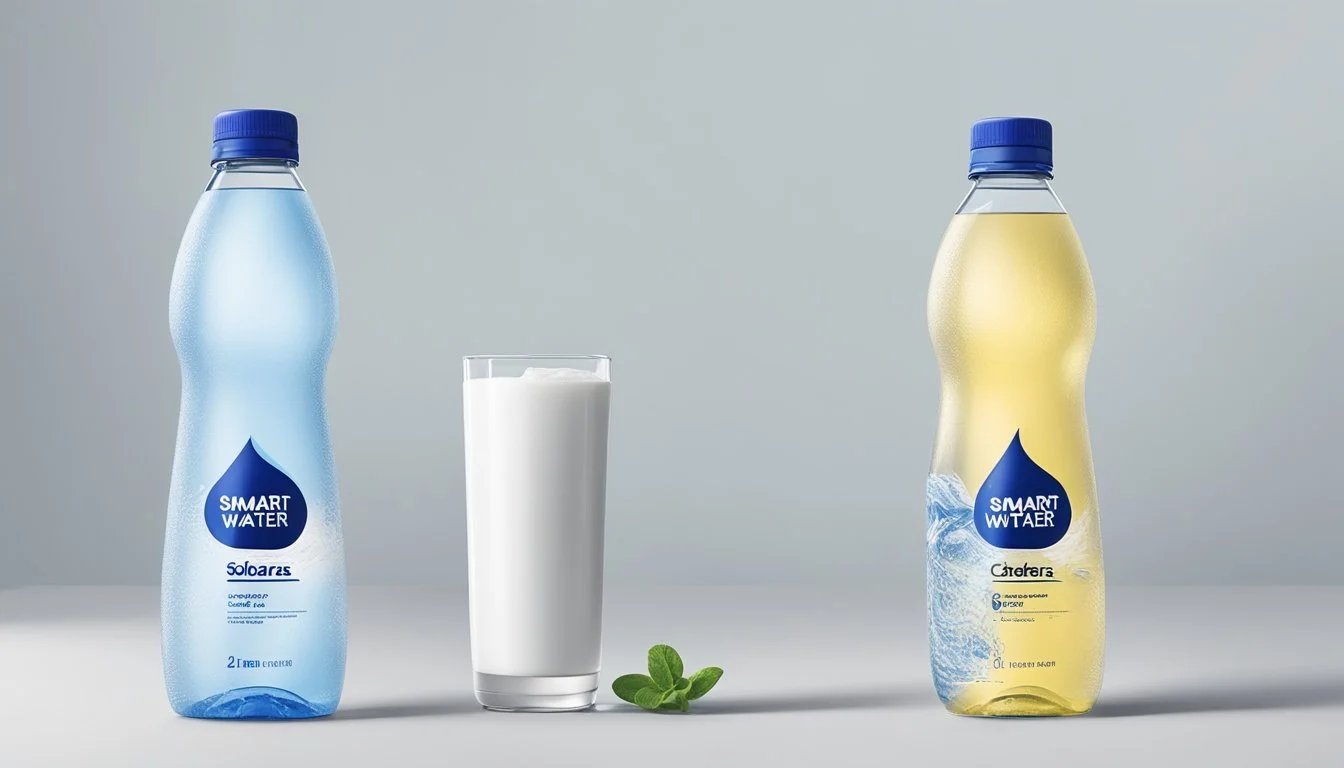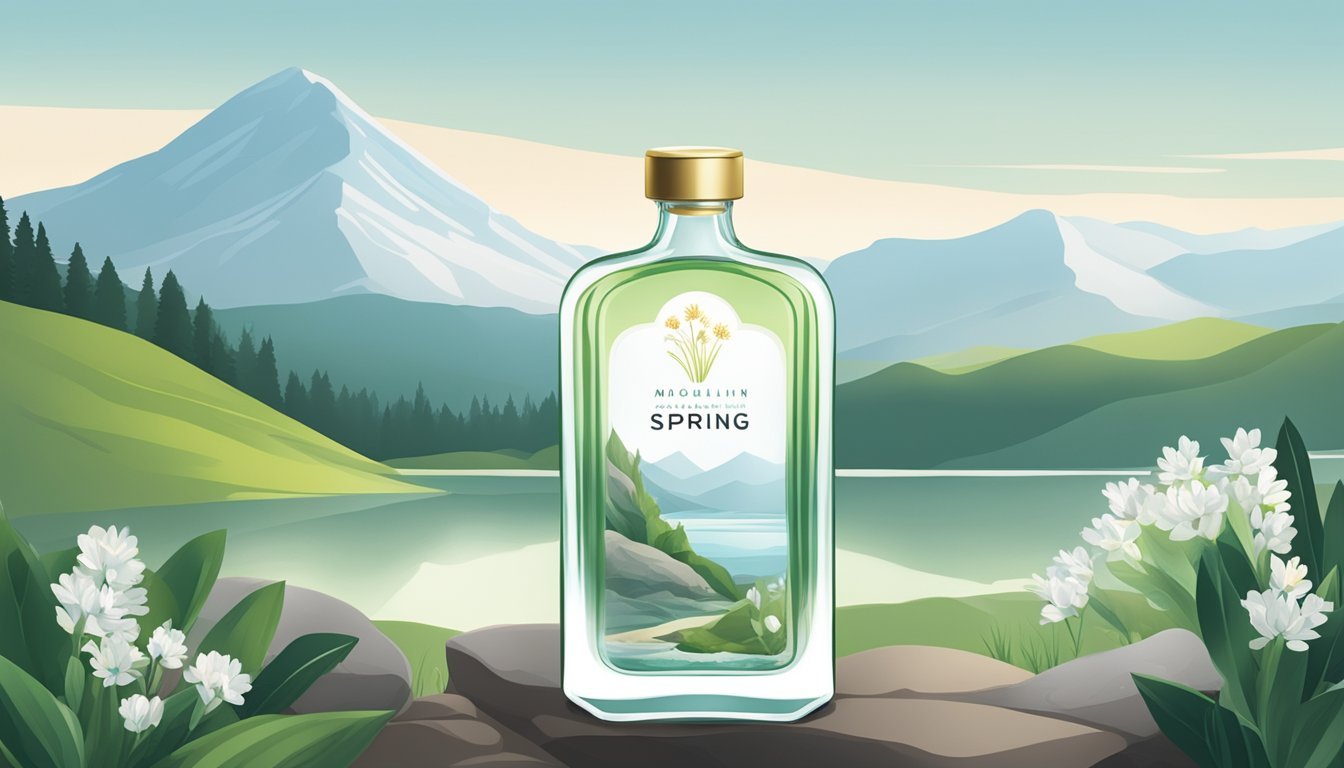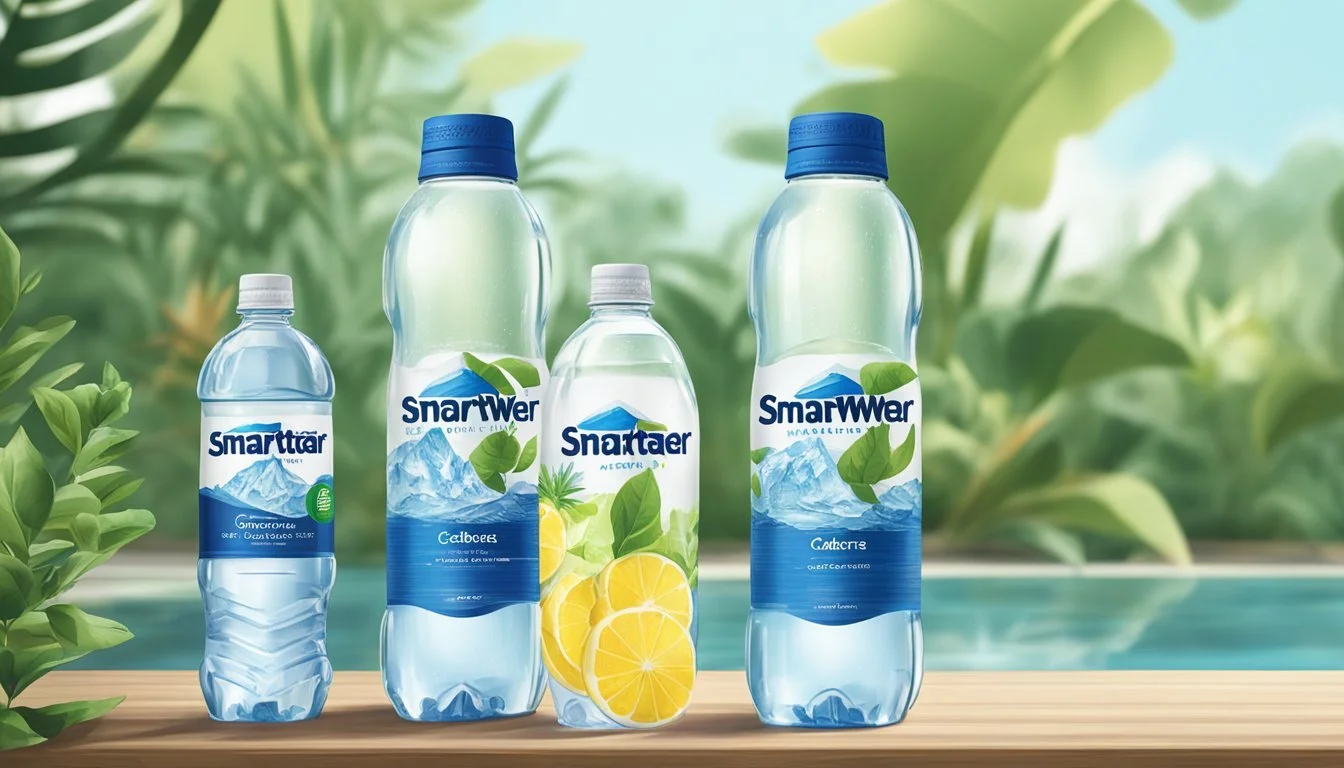Smartwater vs. Solán de Cabras
An Objective Comparison of Quality
When choosing between Smartwater and Solán de Cabras, it's essential to consider what each brand offers. Smartwater is known for its vapor-distilled purity and added electrolytes, making it a favorite among health enthusiasts and those seeking hydration throughout a busy day. Smartwater offers the advantage of being convenient for on-the-go hydration, with its added electrolytes enhancing taste and potentially improving hydration.
Solán de Cabras, on the other hand, provides a different experience with its naturally mineral-rich composition. Sourced from Spanish springs, Solán de Cabras appeals to those who appreciate a slightly alkaline water profile and a distinct mineral taste. This makes it an attractive choice for individuals seeking premium quality and a refreshing taste.
Both brands have their unique selling points. While Smartwater is perfect for those prioritizing convenience and added electrolytes, Solán de Cabras stands out for its natural mineral content and premium feel. Choosing between them ultimately depends on personal preferences regarding taste, mineral content, and intended use.
Understanding Bottled Water
Bottled water varies greatly in history, types, and quality definitions. Exploring these aspects reveals crucial differences between available options.
History and Evolution of Bottled Water
Bottled water's history dates back centuries. Romans discovered natural springs and valued their waters for purity and healing. Over time, bottling and commercial distribution emerged, making premium water accessible. In modern times, bottled water became a staple due to convenience and safety concerns over tap water.
In the 20th century, technological advancements like reverse osmosis and advanced filtration improved water purity. Today, the bottled water market includes diverse products, each catering to specific hydration and taste preferences.
Types of Bottled Water
Bottled water falls into several categories:
Spring Water: Originates from natural springs. Rich in minerals.
Purified Water: Undergoes treatments like distillation or reverse osmosis. High purity.
Mineral Water: Contains minerals from sources. Often marketed for health benefits.
Electrolyte Water: Enhanced with added electrolytes. Targets athletes and active individuals.
Each type has unique characteristics, aligning with different consumer needs. Some prioritize natural mineral content, while others seek enhanced purity or added electrolytes for hydration.
Factors Defining Water Quality
Water quality hinges on multiple factors:
Source: Water can originate from springs, wells, or controlled municipal sources.
Purity: Measured by levels of contaminants and impurities. Treatments aim to remove undesirable elements.
Mineral and Electrolyte Content: The presence of minerals and electrolytes impacts taste and health benefits.
Filtration Methods: Techniques like reverse osmosis ensure high purity, removing contaminants effectively.
Evaluating bottled water involves understanding these factors. Consumers should consider their water's origin, purity level, and the presence of beneficial minerals or electrolytes based on personal preference and health needs.
Smartwater: Brand Profile and Distinct Features
Smartwater, a product under the Coca-Cola brand, has made a distinct mark in the bottled water market with its vapor-distilled production and added electrolytes for taste.
Production Processes and Water Source
Smartwater is produced using a unique vapor-distillation process. This technique mimics the natural water cycle, where water is evaporated, condensed, and then collected. The result is a highly purified water.
The source of the water can vary, but the process ensures the same level of purity regardless of origin. Vapor-distillation removes impurities, giving Smartwater a clean, crisp taste.
The process is inspired by how clouds form and release rain, ensuring consistency in quality.
Ingredient Profile
Smartwater includes added electrolytes to enhance flavor. These electrolytes are calcium chloride, magnesium chloride, and potassium bicarbonate.
Calcium chloride is known to help retain moisture in cells. It contributes to Smartwater's smooth mouthfeel.
Magnesium chloride aids in hydration and metabolic processes. It also adds a subtle hint of flavor.
Potassium bicarbonate helps maintain the water's neutral pH and balances the electrolytes.
Smartwater's formula sets it apart by focusing on both purity and a carefully balanced mineral profile.
Solán de Cabras: Brand Profile and Distinct Features
Solán de Cabras, originating from Spain, is esteemed for its purity and rich mineral composition. Its water source, located in the serene Serranía de Cuenca, contributes to its unique properties, offering various health benefits.
History and Water Source
Solán de Cabras has a rich history, tracing back over 3,600 years. Its origin lies in the Serranía de Cuenca mountains in Spain, approximately 950 meters above sea level. This area's unique geological features provide the water with its distinct qualities.
The water undergoes a natural filtration process that lasts thousands of years. It begins as rainwater and slowly filters through the rocks, emerging as pure spring water. This extensive filtration period ensures that Solán de Cabras water is free from contaminants, preserving its natural purity and taste.
Mineral Composition and Health Benefits
Solán de Cabras boasts a balanced mineral composition. Key minerals include bicarbonate, calcium, sodium, potassium, and magnesium. This unique blend contributes to the water's slightly alkaline pH level, making it a preferred choice for those seeking health benefits from their hydration.
The minerals present in Solán de Cabras can aid digestion, support bone health, and help maintain electrolyte balance. Its bicarbonate content is known to help neutralize stomach acid, while calcium and magnesium are essential for bone and muscle functions.
Overall, the pristine source and rich mineral content make Solán de Cabras a premium choice among bottled waters, offering both purity and potential health benefits.
Comparative Analysis
When comparing Smartwater to Solán de Cabras, key factors to consider include taste, mineral content, pH level, and their respective health implications.
Taste and Palate Experience
Smartwater offers a clean, crisp taste, often described as refreshing due to its vapor-distilled process. It is marketed as having a pure flavor profile, which many find to be smooth and neutral.
Solán de Cabras, sourced from Spain, provides a distinct taste with a subtle mineral presence. This water is known for its balance between smoothness and slight minerality, making it appealing to those who prefer a natural taste.
Both waters are high-quality, yet they cater to slightly different taste preferences.
PH Level and Mineral Content
Smartwater has a neutral pH of around 7. This balance aims to complement the body's natural pH level. The brand also offers Smartwater Alkaline with a higher pH.
Solán de Cabras has a pH level that typically ranges around 7.4 to 7.9. This slight bias towards alkalinity can be beneficial for maintaining the body's pH balance.
Mineral Content (per liter):
Smartwater:
Calcium: Minimal
Magnesium: Minimal
Potassium: 10 mg
Chloride: Minimal
Solán de Cabras:
Calcium: 14.5 mg
Magnesium: 25 mg
Potassium: 0.4 mg
Chloride: Minimal
Bicarbonate: 248 mg
These values show that Solán de Cabras contains higher mineral levels, especially bicarbonate and magnesium, enhancing its nutritional value.
Hydration and Health Implications
Smartwater is designed to replicate the purity of distilled water. Its added electrolytes for taste (potassium and magnesium) aid in basic hydration needs. Its low mineral content makes it suitable for regular consumption without concerns of overloading the body with minerals.
Solán de Cabras, with its natural composition, offers more robust mineral support. The higher bicarbonate content can assist in reducing acidity in the body. The presence of calcium and magnesium also supports bone health and muscle function.
Both provide excellent hydration, but Solán de Cabras may offer additional health benefits due to its richer mineral content.
Environmental Impact
When evaluating the environmental impact of Smartwater and Solán de Cabras, it's essential to consider their bottling and packaging practices as well as their commitment to sustainability and eco-friendliness. Each brand has unique approaches that affect both their environmental footprint and consumer choice.
Bottling and Packaging Practices
Smartwater primarily uses plastic bottles made from polyethylene terephthalate (PET). While PET is recyclable, it poses environmental challenges such as BPA concerns and potential leaching. Smartwater has made efforts to produce bottles using a percentage of recycled plastic, but the effectiveness of these efforts depends largely on consumer recycling behavior.
In contrast, Solán de Cabras opts for glass bottles. Glass is often considered more environmentally friendly as it can be recycled infinite times without losing quality. Glass bottles also eliminate concerns about BPA and leaching. However, glass production and shipping require more energy due to their weight and fragility, which can increase the carbon footprint.
Sustainability and Eco-Friendliness
Smartwater has initiatives aimed at improving its sustainability profile, such as reducing the plastic weight of its bottles and promoting recycling programs. They have also partnered with organizations to support environmental causes. Yet, the reliance on plastic remains a critical issue impacting the overall eco-friendliness of the brand.
Solán de Cabras, with its long history, emphasizes sustainability through its commitment to natural filtration methods and minimal human intervention. Their glass bottles support a circular economy thanks to easier recycling processes. However, the energy-intensive nature of glass bottle production and transportation can counterbalance these benefits, raising concerns about their long-term environmental impact.
Both brands provide valuable options for environmentally conscious consumers, though each has its trade-offs.
Consumer Insights
Understanding consumer preferences and current market trends can provide valuable insight into how Smartwater and Solán de Cabras are perceived and chosen among other popular bottled water brands.
Customer Preferences
Customers often prioritize factors such as mineral content, taste, and packaging when selecting bottled water. Solán de Cabras, sourced from Spain, is appreciated for its soft mineral composition and subtly sweet taste, making it a favorite among those seeking a premium, smooth drinking experience.
Smartwater, by contrast, stands out for its vapor-distillation process and enhanced electrolytes, catering to those who prioritize purity and hydration. It appeals to consumers looking for a crisp, clean taste. The choice often depends on individual preferences for mineral richness or a more refined, purified water.
Market Trends and Brand Perceptions
The bottled water market has seen a significant rise in premium brands, with increasing consumer interest in health and wellness. Solán de Cabras is often perceived as a luxury option, often found in high-end restaurants and hotels, enhancing its elite appeal.
Smartwater benefits from strong marketing campaigns and celebrity endorsements, positioning it as a trendy, everyday hydration choice. Compared to other brands like Fiji and Voss, Smartwater maintains a balanced image of affordability and premium quality, whereas Solán de Cabras aligns more closely with brands like Evian and Pellegrino in its niche positioning.
Market adaptability and branding strategies play crucial roles in shaping consumer perceptions. Smartwater's versatile image and Solán de Cabras' luxurious positioning reflect broader trends in the bottled water industry.
Conclusions
Smartwater and Solán de Cabras present distinct qualities that cater to different preferences.
Smartwater offers a more purified experience. It undergoes vapor distillation, which removes impurities, giving it a clean and crisp taste. This process, however, results in only trace amounts of minerals.
In contrast, Solán de Cabras is known for its rich mineral content. Sourced from the Serranía de Cuenca in Spain, its natural minerals contribute to a balanced and refreshing taste.
In terms of quality, Smartwater’s production process ensures a high level of purity. Solán de Cabras, with its historical legacy, provides a more natural option.
Both waters appeal to active individuals. Smartwater, with added electrolytes, supports hydration during exercise. Solán de Cabras, with its mineral-rich content, can also be beneficial for maintaining hydration.
When considering taste, Smartwater tends to be smooth and neutral, making it suitable for those who prefer a cleaner flavor. Solán de Cabras, on the other hand, offers a more distinctive mineral profile, appealing to those who enjoy a subtle, natural taste.
In balance, Smartwater emphasizes purity and added electrolytes while Solán de Cabras focuses on natural mineral content and rich heritage.
Each brand has unique strengths. Choosing between them depends largely on individual preferences for mineral content and production processes.
Both Smartwater and Solán de Cabras provide high-quality bottled water, meeting different needs based on purity, taste, and mineral content.








